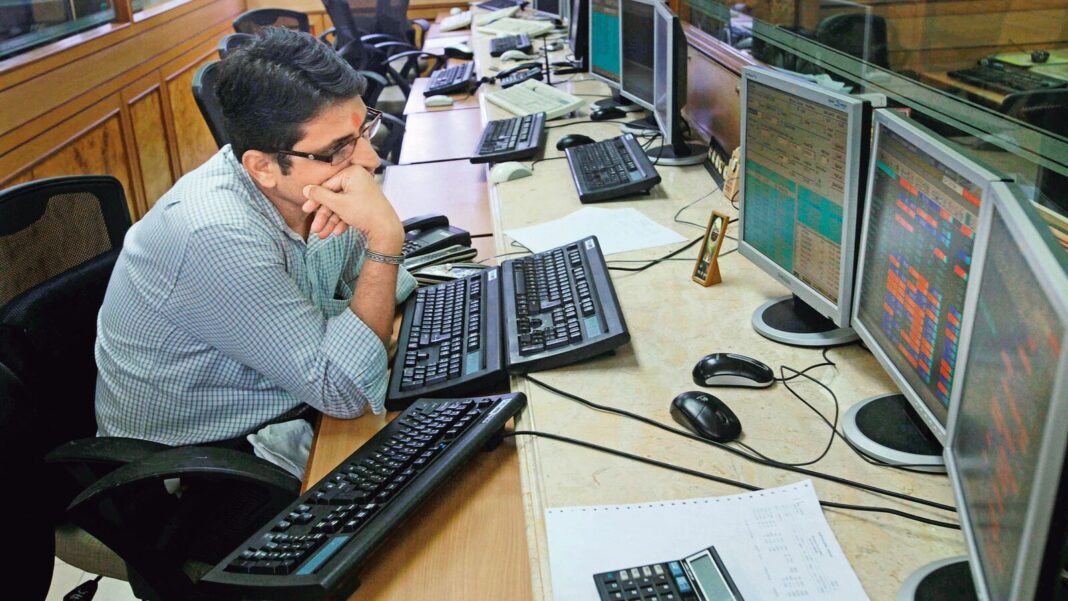After being net buyers for three consecutive days, foreign portfolio investors (FPIs) reversed their stance on Thursday, offloading a massive ₹11,756 crore worth of Indian equities. This sell-off exceeded the cumulative three-day buying total of ₹11,112 crore and marked the fourth largest single-day outflow by FPIs in 2024 so far.
The heavy FPI sell-off weighed on markets significantly, with both the Nifty 50 and Sensex tumbling nearly 1.5% in the previous trading session to record the steepest intra-day decline in November.
The selling pressure from FPIs has been relentless so far this month, with cumulative outflows of ₹41,355 crore from Indian stocks. This adds to the net sales of ₹1.14 lakh crore recorded in October, according to Trendlyne data.
Meanwhile, domestic institutional investors (DIIs) continued to provide support, purchasing ₹8,718 crore worth of Indian stocks on Thursday, taking their overall November buying to ₹38,760 crore.
The substantial selling pressure has further impacted the Indian rupee, which slid to a new record low of 84.45 against the US dollar.
On the global front, geopolitical tensions have intensified, with the Russia-Ukraine conflict persisting and reports emerging of Israel breaking a ceasefire agreement. Additionally, recent US economic data showed resilience, diminishing hopes of a Federal Reserve rate cut in the upcoming meeting. These global uncertainties have significantly dampened investor sentiment, according to the market experts.
What initially began as a ‘Buy China, Sell India’ strategy among FPIs has now transformed into one of the most prolonged and significant selling streaks witnessed in recent times.
Domestically, the outlook remains equally challenging. Concerns over the Indian economy potentially hitting a six-quarter low in Q2 FY25, weaker-than-expected Q2 corporate earnings, and brokerages lowering their Nifty 50 target levels have further dented the confidence of foreign investors, amplifying the outflow trend.
According to the latest media reports, Israel’s military launched an airstrike on a Hezbollah facility in southern Lebanon, targeting a storage site for mid-range rockets, despite a ceasefire agreement that took effect just a day earlier. This move has sparked concerns about the fragility of the ceasefire, which aims to halt fighting for an initial two-month period.
Additionally, Russia on Thursday unleashed its second big attack on Ukraine’s energy infrastructure this month, the media reports showed.
Brokerages Prabhudas Lilladher, InCred, and Emkay trim Nifty 50 targets
Domestic brokerage firm Prabhudas Lilladher has revised its year-end target for the Nifty 50, lowering it to 27,381. The brokerage suggests a selective “buying on dips” strategy for long-term gains, noting that while Indian markets are on track, headwinds are still yet to peak.
InCred Equities has also reduced its target for the Nifty 50 blended index by 3%, setting it at 25,327. According to their analysts, the Nifty 50 index has corrected by 8% since its peak in mid-September 2024, with mid-cap and small-cap stocks underperforming. The primary sectors dragging the index include information technology (IT), capital goods, and pharmaceuticals. While the forward P/E ratio has eased below its 10-year average, InCred expects the correction phase to continue for several more months as the weak macroeconomic conditions have dampened earnings-per-share (EPS) momentum.
Earlier, Emkay Global Financial Services also lowered its December 2025 Nifty target by 4%, reducing it to 25,000 from 26,000 previously on the back of disappointing second-quarter earnings, mainly driven by weaker performance in the discretionary and staples sectors, as well as deteriorating corporate cash flows.
Disclaimer: The views and recommendations given in this article are those of individual analysts. These do not represent the views of Mint. We advise investors to check with certified experts before taking any investment decisions.
Catch all the Business News , Market News , Breaking News Events and Latest News Updates on Live Mint. Download The Mint News App to get Daily Market Updates.
MoreLess


